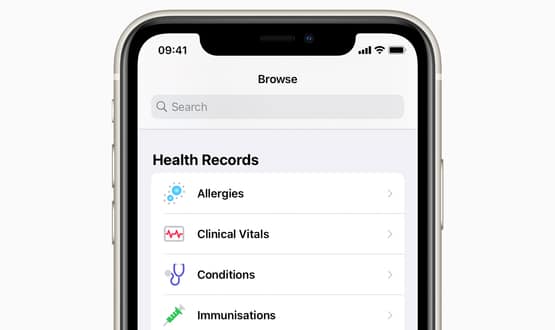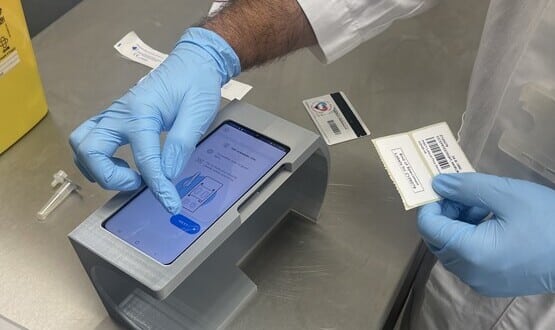Apple to introduce new health insights with iOS 15 launch

Apple is bringing advanced consumer health and wellness insights to its users plus the ability to share data with loved ones, with the launch of iOS 15.
Building on its current suite of health tools for the iPhone and Apple Watch, iOS 15 users will have the ability to securely share their data with family, friends or health professionals, as well as receive insights into the health and wellbeing of their loved ones. Additionally a fleet of new tools will allow users to identify, measure and understand changes in their health data.
The news comes less than a year after Apple launched Health Records on the iPhone into the UK market. The app was created to help users organise their important health information in a central and secure place.
Health sharing
The new tab allows users to share over 100 types of health data with others. The user can determine which data they wish to share and with whom: this could extend to sharing fertility windows with a partner, an ageing parent’s risk of falling being monitored by their offspring or fitness information being shared with a healthcare professional.
While the new tools are not intended for diagnostics, they could lead to more meaningful conversations with GPs. Currently in the US, participating healthcare organisations can review the app’s data if users opt to share directly in the electronic healthcare records system. Users can give permission for the app to track vital information which can be used to monitor health between healthcare appointments and save information that could be vital for a healthcare professional to know.
Granular control is given over which data they choose to share and who they share it with. The data is encrypted both on the user’s device and when it is in transit. Apple has said it has no access to the information.
Tracking trends
Users will be able to keep track of their health and spot subtle changes in patterns that could otherwise easily be missed. The Health app uses trend analysis for 20 different types of data, proactively highlighting important changes and presenting the information in an easy-to-understand format.
Health metrics like blood glucose, respiratory rate, sleep and heart rate can all tracked. Trend analysis can also be applied to data provided from third-party devices connected to the Health app – such as monitoring insulin delivery.
Walking steadiness
In an industry-first, the walking steadiness tool provides insight into fall risk, by capturing mobility data. Custom algorithms are used to assess balance, stability and coordination via the built-in motion sensors on the iPhone. The metric was established using real-world data from the Apple Heart and Movement Study and goes a step further than the fall detection feature launched in 2018.
Possible fall risks will result in an alert and users can also choose to receive notification of low scores which will direct them to curated visual exercises based on clinically validated methods to improve strength and balance.
Additional updates
While the above enhancements are likely to grab the headlines, Apple has also introduced some other additional updates to enhance the Health app. Globally, users will have the ability to store medical records of vaccines and test results within the app. Regardless of whether a vaccine provider or healthcare location supports the Health Records feature or not, users will be able to download verifiable Covid-19 vaccination and test result records from either a QR code or an online browser.
Apple says the developer preview of iOS 15 is currently available to Apple Developer Program members, with a public beta available in July. The new software features will be available from the autumn.




